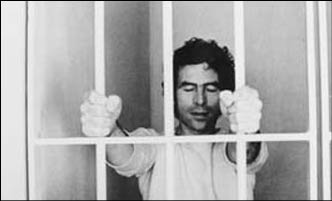Next story: Robert Pollard: From a Compound Eye
When They Came For Me...: Les Ordres
by M. Faust

In the fall of 1970, separatist tensions in Quebec were boiling over. The revolutionary separatist Front Libération du Québec capped an accelerating campaign of violence by kidnapping two politicians, one of whom they killed. Canadian Prime Minister Pierre Trudeau invoked the War Measures Act and effectively declared martial law. The Canadian Army was sent into Montreal, where—under the direction of local civil authority—they arrested 450 citizens who were guilty only of leftist leanings unrelated to the terrorists. These people were seized without warrants and held without charge for up to three weeks.
You don’t need to know all of that to view the 1974 film Les Ordres (The Orders), routinely ranked one of the ten best Canadian films ever made, or to appreciate its relevance to the “homeland security” state in which we now live. In fact, aside from an opening informational crawl the film makes next to no mention of the context. It is a dramatization of the experiences of some of those people, culled from interviews with 50 of those who were actually incarcerated.
There is no lack of movies about innocent people locked up for reasons unknown to them, but those are usually set in Latin America or Eastern Europe, places at a comfortable remove from our lives. Les Ordres, by contrast, takes place in Canada, a country we consider essentially the same as the US, maybe a little advanced for having worked out some of those social issues in which we remain mired, like national health care and gay rights.
Les Ordres opens on a day like any other, as residents of a low-income neighborhood of Montreal carry on with their lives. Clermont and Marie Boudreau (Jean Lapointe, Hélène Loiselle), a couple who moved to the city from rural Quebec, struggle to raise their three children on his salary at a weaving factory, where he is a shop steward. Unemployed Claude Gauthier (Richard Lavoie, a major Quebec star of the era) tends to his own children while his wife works a night shift waitressing job. Claudette Dusseault (Louise Forestier) is a dedicated social worker who knows how to cause trouble for slumlords. Dr. Beauchemin (Guy Provost) operates a community health clinic for low-income families. He was once the socialist candidate in a local election.
All are arrested in the middle of the night by police who, when pressed for a warrant, say only “Don’t need a warrant—there’s a new law.” They are not allowed to communicate with anyone outside of the prison where they are held, nor are they allowed to receive visitors or legal counsel.
Jaded viewers might be surprised to learn that nothing horrible in the usual sense happens to these people—aside from one who is subjected to psychological torture. Instead, we are asked to contemplate a more subtle form of horror, that of having the social compact under which we live suddenly and arbitrarily yanked away. Experiences that seem banal after we’ve seen them in a thousand movies and television shows, of prisoners being stripped, put in prison garb, fingerprinted and shaved, take on a whole new aura.
Filmmaker Michel Brault, who was named Best Director at Cannes for Les Ordres, was a pioneer in the “direct cinema” movement of the 1960s. Though he worked primarily in documentaries, as a cinematographer from the late 1950s, he turned to fiction because “it doesn’t pretend to be the truth and therefore is not a lie.” His concerns remained more humanist than political, and Les Ordres is at all times about the experiences of the people whose stories are being told. (An unusual tactic of having the actors introduce themselves and speaking in the first person about the background of their characters is an effective shorthand way of bringing them to a fuller life in our eyes.) For anyone who questions whether civil rights can be traded off in a bargain for protection from threats of terrorism, this is a must-see film.
Les Ordres will be screened Saturday night at 8pm at Hallwalls, 341 Delaware Ave. (www.hallwalls.org)
|
Issue Navigation> Issue Index > v5n8: Mardi Gras (2/23/06) > Film Reviews > When They Came For Me...: Les Ordres This Week's Issue • Artvoice Daily • Artvoice TV • Events Calendar • Classifieds |









 Current Issue
Current Issue